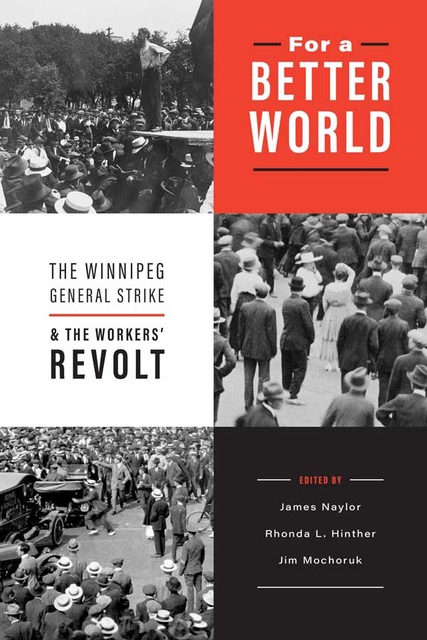
edited by James Naylor, Rhonda L. Hinther and Jim Mochoruk
UNIVERSITY OF MANITOBA PRESS
2022/$31.95/408 pp.
In significant ways, 1919 is ancient history: more than half of Canada’s approximately eight million residents lived outside of urban areas; the Eiffel Tower was the tallest structure on Earth; films were silent; toasters, zippers and shortwave radios were brand new to the market; bread cost 10 cents a pound, butter about 70 cents. The National Hockey League was only two years old, and the Toronto Maple Leafs had won both championships. It was a different world.
But, as demonstrated by For a Better World: The Winnipeg General Strike and the Workers’ Revolt, the transformative events of 1919 can teach us a great deal about the past, the present and, perhaps most importantly, the future. This diverse collection of essays, resulting from the centennial celebrations of the Winnipeg General Strike, effectively complicates the historical record, adding the stories of Indigenous peoples, soldiers, Jews, popular memories and local unrest to the literature. While a dedicated section on gender might have added additional value, together the 16 individual chapters introduce readers to the period of upheaval and point to issues that remain relevant today.
For example, by expanding beyond Winnipeg to explore labour revolts in Edmonton, the Crowsnest Pass, Montreal, Kansas City, Seattle and the Americas broadly—Kansas City being particularly fascinating—it becomes clear that, following the First World War, Western society was in crisis and therefore highly vulnerable to social pressure. Each labour revolt evolved differently in response to the local environment, but all around the world workers were becoming aware of the injustices inherent in capitalism and were searching for alternatives. Similarly immersed in a devastating crisis of capitalism, 21st century activists might learn from the similarities and differences in these cases.
It is essential to acknowledge, as the collection does, that workers were not immune to racism, sexism or xenophobia, and engaged actively and uncritically in the colonial project. The progressive societies they imagined often replicated existing inequalities and oppressions, despite their rhetoric of universal personhood and solidarity. It would be wise to resist the same trap in the future.
As well, by chronicling how governments and business leaders replaced labour-friendly police with forces they could control, these essays remind readers that law enforcement exists to protect elite interests, not the masses. As Gregory S. Kealey notes in his chapter on “the Winnipeg origins of 100 years of Canadian state spying on labour and the left,” militia forces in Winnipeg in 1919 “were drawn from the youth of the ambitious local elite, primarily professionals such as engineers, surveyors and contractors, and were all of English or Anglo-Canadian origin”—forces chosen for “their loyalty to empire, their focus on masculinity, and their fascination with ritual, patriotism and pageantry.” Capitalists clearly understood the power of armed and legitimized protection. Activists should too.
Influenza is mentioned only in passing in the collection. Living now in the midst of ongoing pandemic, it would be interesting to know more about how the pandemic 100 years ago affected organizing efforts, community ties and attitudes towards those in power. There might be lessons in this analysis.
Overall, For a Better World does not provide step-by-step instructions on how to replicate the Workers’ Revolt of 1919—this would be impossible given the unique context—but it does highlight issues that should continue to animate discussions and debates about social change more than 100 years later. It is an excellent read.
Roberta Lexier is an associate professor of history at Mount Royal University and the co-editor of Party of Conscience.
_______________________________________

